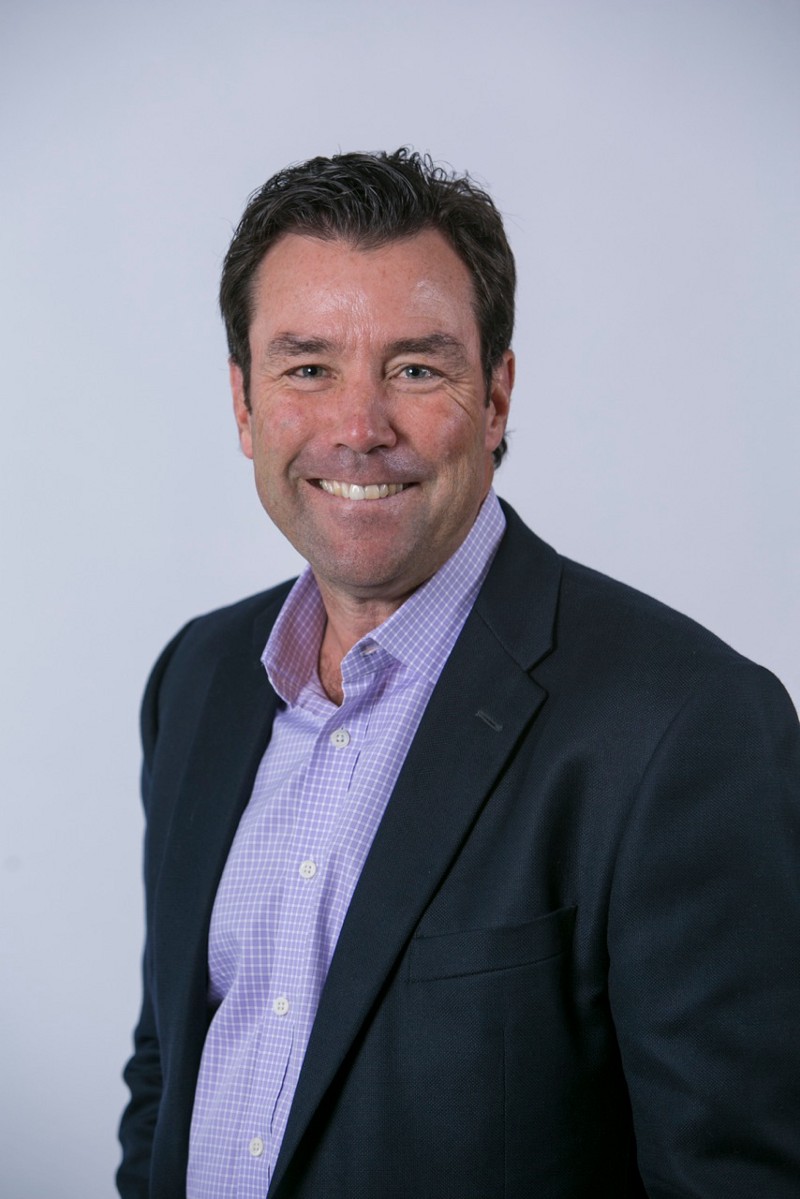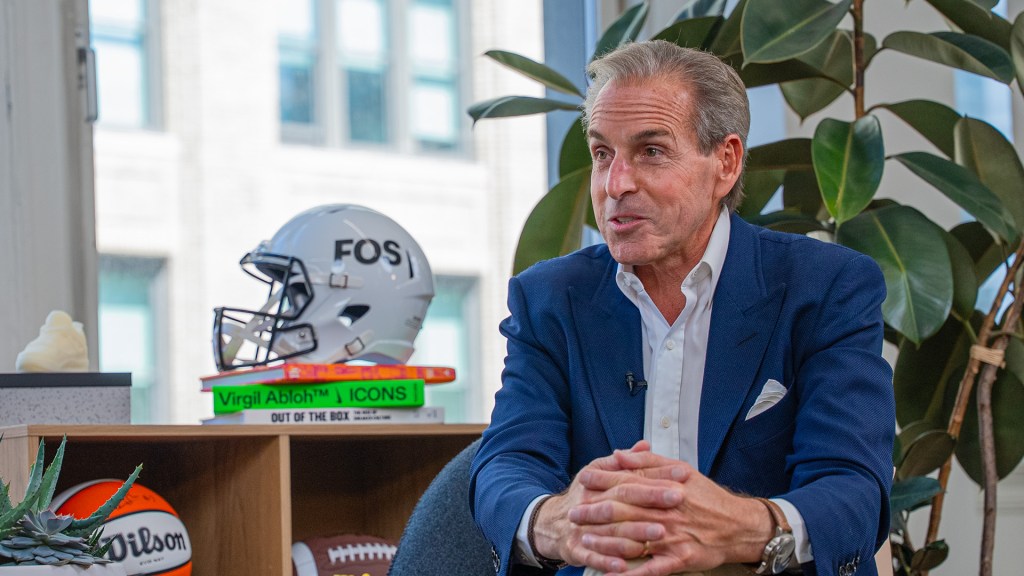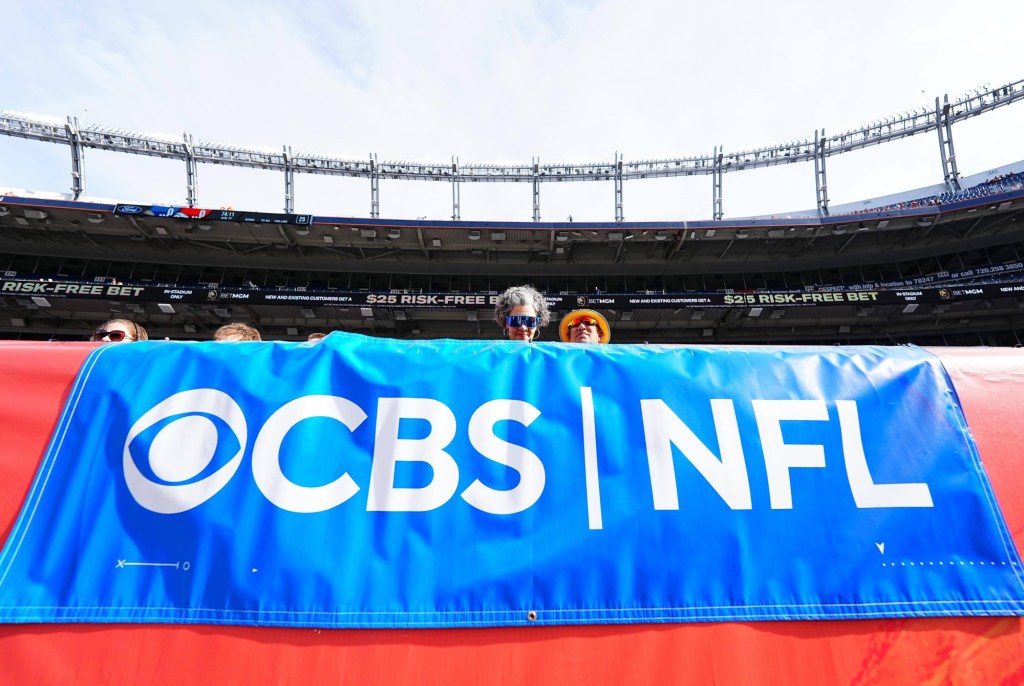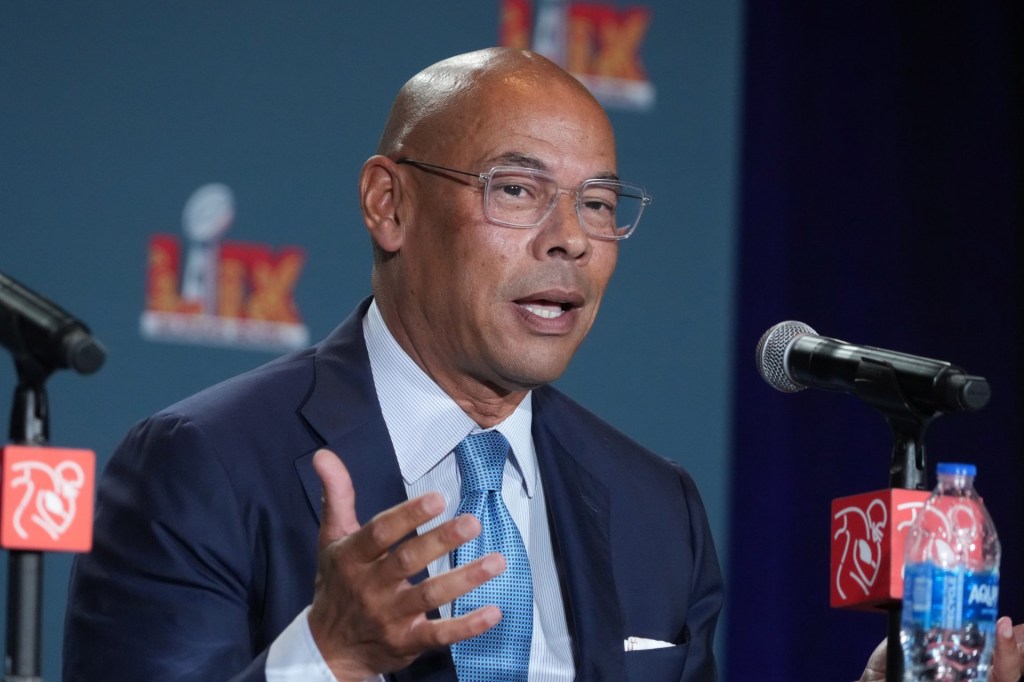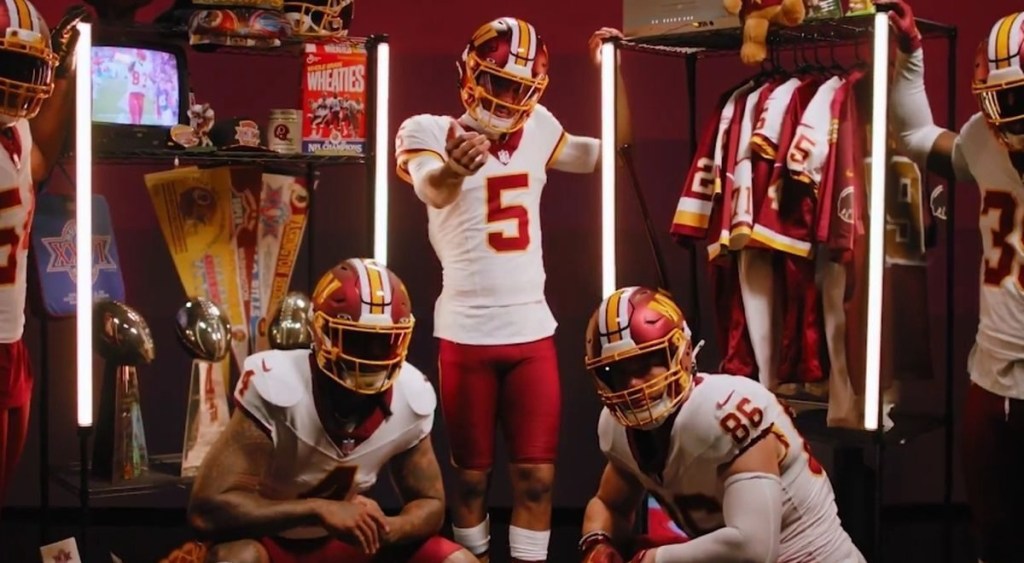This interview is presented to you by the University of Nebraska — Lincoln Master of Arts in Business with a Specialization in Intercollegiate Athletics Administration.
By: Travis Gorsch, @tgorsch3

Keith Bruce was named CEO and President of the San Francisco Bay Area Super Bowl 50 Host Committee on September 6, 2013. Three years have passed since that day and the books have officially been closed on the Host Committee after their final board meeting. There was a lot packed into those three years, but his journey started well before that, 30 years ago at the University of Illinois. Bruce earned his Bachelor’s in Marketing in 1987, just two years after the last Super Bowl was played in the Bay Area between the Miami Dolphins and San Francisco 49ers.
“My plan coming out of Illinois was to do something of scale in marketing and business. I hadn’t really identified sports as a path.”
Bruce would discover this path after taking his first post-graduate job out of college at Leo Burnett in Chicago. Leo Burnett Worldwide is one of the world’s largest agency networks with 98 offices and nearly 10,000 employees today. They work with big brands from Coca-Cola, Fiat, Kellogg’s, McDonald’s and P&G to name a few.
“They [Leo Burnett] were one of the best in the country. They had a great management trainee program. I was one of the handful of people to get in to their recruiting class. I was fortunate to be selected. The fact that I got in motivated me further to go that route in my career. I wanted to do big, national advertising and brand marketing when I started. It was amazing to be able to do it for a well-respected agency such as Leo Burnett.”
“Around 1990, the sports industry was starting to formalize. There weren’t many majors in sports management or marketing. There were maybe one or two schools that offered it. It wasn’t near the marketplace it is today.”
“I got a break at Leo Burnett to work on the Philip Morris (tobacco) sports campaign when it was still legal back then. I worked on Marlboro Racing, which was primarily Formula 1 and the Virginal Slims Tennis tour, which is now called the WTA (Women’s Tennis Association). This exposed me to corporate brands using sports to build their platform. It was combining my desire to work in international brand marketing with my passion of the sports industry. That really opened my eyes and sent me off on what’s been a 25 year journey in the sports industry.”
After leaving Leo Burnett and before joining Foote, Cone, & Belding three years later, Bruce worked for another agency, BBV. The agency managed the global Gatorade account, and Bruce joined the agency as a Vice President, overseeing Gatorade advertising as well as sports marketing around Gatorade sponsorships.
“This reinforced my desire to get into sports marketing and ultimately motivated me to go west and move to San Francisco. My boss, at the time, moved to San Francisco to become the global lead for Levi Strauss. Once I got out there, we convinced our parent group (Interpublic Group) to fund a sports marketing department. I took my agency and client services model and focused on how to use sports to build brands and businesses. We applied our core advertising and brand strategy experience to build sports marketing campaigns for some pretty big brands.”
Bruce joined the Foote, Cone, & Belding San Francisco Team in 1996 when he was named the SVP, Director of Sports and Event Marketing/Founder 361 Sports + Events Marketing.
“It became a much more popular thing for marketing agencies to have sports marketing as a service. There were sports agencies that were starting to pop up all over the place. And the holding companies of these ad agencies started to take notice. One of those companies was Omnicom. They were the largest advertising and marketing services holding company in the world. They went on a search to find a Head of Global Sports. The job was not necessary sports talent representation but representing their agency’s brands and clients.
They found the perfect fit in 2003 when they hired Bruce as the Executive VP, Head of Global Sports at the Radiate Group.
“I did that for two years and really enjoyed it. One of the companies we acquired was SportsMark. It let me get back to an executive operating role in 2005. That was a job that I thought might have a four to five year shelf life after helping the company grow.”
Bruce became the President of the newly acquired company, SportsMark, in 2006. He would lead all of the agency’s client programming, revenue generation, global client event management, corporate hospitality and strategic services.
“SportsMark was originally an Olympics agency that had done some things for brands in the hospitality realm. We were able to expand with properties such as the FIFA World Cup as well as the domestic space with marquee experiences. This included the PGA Tour, NCAA Final Four and Super Bowl. Basically, if there was a major event happening around the globe, we would be there representing sponsors at those events.”
These experiences with multiple Olympic Games, World Cups and Super Bowls set up Bruce favorably when the Super Bowl 50 Bid Committee and Daniel Lurie launched their search for a CEO and President to lead the Host Committee.
“At the end of the day, I think it was the combination of my global event marketing and management experience that may have set me apart. Having experience with the largest events in the world and exposure to multiple participants such as broadcasting, sponsorship, event operations, security and transportation, hospitality and many more aspects provides a really unique perspective. We represented the sponsors of these big events at SportsMark so when you’re representing that side of the event world you get exposure to the things that are important to the sponsors, like venues, ticketing, marketing rights and hospitality. It shed light on how these events were managed and should be executed.”
“That perspective and working alongside the NFL for a dozen years on the Super Bowl gave me an idea on what it takes to run a Super Bowl. And having parallel experience really helped. The Committee that won the bid for Super Bowl 50 and Daniel Lurie’s first act was to find a CEO. The NFL saw the opportunity to grow the game globally based on San Francisco’s platform. They wanted someone with global experience and someone that had worked with major sporting events before, which I had done for the past 20 years..”
“The bid committee wanted someone who knew how to build a sponsorship model and how to build an operations team to deliver the events experience. That’s what appealed to Lurie and the bid committee. It was the collective journey, the prior 20 years that made me a custom fit for this opportunity. I would be running the organization as employee number one, starting the company from scratch. There were risks involving the operations, public safety, transportation, fundraising and stakeholder management that I had to prepare for.”
Being employee number one and having to build a team from scratch to execute what would be the biggest Super Bowl ever was a tall task, but Bruce embraced it. Bruce believes that people look at the top of the pyramid to set the tone for the entire organization.
“I’m a big believer in team culture and know how exhaustive these events can be. You have to have the right people that can work on the task at hand and realize that it’s a team business. They have to connect the moving parts and move in unison. I think I brought that mentality to hiring people on the Host Committee.”
“When Daniel [Lurie] hired me, he asked me, ‘How do we get good people to work for the Host Committee knowing they are going to be out of a job in a couple years?’ I had to remind him that I would also be one of those people without a job when all was said and done.”
“Another thing the hiring committee saw in me was I had connections. Since I came from the (sports) industry, I had a good sense of who I would hire for my leadership team. I knew Rosie [Spaulding] & Stephanie [Martin] from America’s Cup, Pat [Gallagher] from the [San Francisco] Giants, I knew Walt [Dobrowolski] and Kevin Solon from SportsMark, and Danielle [DeLancey] was a part of the bid committee. I just laid it all out there and said this is my vision for the organization and these are the critical positions that will shape how we are going to operate and set the culture for Super Bowl 50 and our organization.”
Bruce hired these people because he knew that they had the experience and core qualifications. However, there were also some intangibles that Bruce focused on including people skills, personality, passion, and being a team player.
“We ran the Host Committee for three years and we didn’t have anyone leave. Not one person. Every other Super Bowl host committee has had some defections. It’s high pressure. It’s an incredible amount of work and commitment of hours. Some people realize that it’s not for them. I hired people who knew what they were getting into and knew how large scale it was going to be.”
After all, they would be executing a Super Bowl in San Francisco, San Jose and Santa Clara. Not just any Super Bowl, but the 50th Super Bowl. The granddaddy of them all, sorry Rose Bowl.
“This was not for the faint of heart or the untested. That senior leadership team was my focus for the first six months on the job. Once that was done, we would fill in from there. I pitched them on working hard and being rewarded as a part of history. Everyone on my team was a part of a historic event. They were committed. One of the things I’m most proud of was the quality of the team and how we came together. The planning was smart and solid, and the operation was pretty much flawless.”
“Culture eats strategy for breakfast. I think we demonstrated that and then some. We had a pretty darn good strategy as well though.”
To all those aspiring CEOs and presidents of future Super Bowls out there, Bruce offered up some advice about making it unique. He also touched on the sacrifices that are required for someone in his position.
“Don’t lean on Super Bowl 50. Look to do Super Bowl 55, 56 or 57 with what we did as a benchmark, but create your own personality. The Super Bowl takes on the personality of the city that hosts it every year. We also had a different requirement. We had a supersized Super Bowl given that it was Super Bowl 50 and the things that the NFL wanted to do in this very special milestone year. Not that the NFL doesn’t want to have each Super Bowl top the previous, but we set the bar so high in so many areas it may take a while for someone to accomplish collectively what we did.”
“The leadership has to be all in. You have to commit your life to it for three years. You have to put family on the back burner. I had to be committed personally and professionally. Thankfully my family supported me. It’s not to say you can’t have balance because you’ll go crazy if you work 24/7 for three straight years.”
For all the positive reviews and accomplishments and as near perfect as the execution of Super Bowl 50 was, there’s always something that could be done differently said Bruce. Anyone who says differently is being a bit insincere or not looking through a corrective lens.
“We might have done some of the transit rerouting differently. We might have relocated some remote events. We tried to mitigate the inconvenience factors for people getting to work in the Embarcadero and Financial District. But for the most part, the reviews have been incredibly positive. If you look at the media, the NFL the sponsors and the fans, you have to listen to their input. The data and metrics showed we broke just about every record we intended to break.”
“One thing that worked in our favor was it had been 30 years since we last hosted the Super Bowl. We were able to create brand new things because no one remembered how it was back then. We created a massive nine-day free to the public fan village that spanned 80 acres of real estate and hosted over 1.1 million visitors in the middle of San Francisco.”
“We needed to celebrate this Super Bowl in an elevated way that aligned with the status of Super Bowl 50. We said either we are going to go big or don’t do it. There’s not too many things I would do differently for this event, but maybe the next time. Next time there will be things, like the fan experience, that we will probably do differently because it won’t be Super Bowl 50 again.”
The impact of Super Bowl 50 set the bar very high in many different areas. Bruce hopes that the bar his team set at Super Bowl 50 eventually becomes the standard and model for future global sporting events. He wants the impact to create a global change long after the event has come and gone.
“I think what we did should influence future global events. There are several areas that really stand out to me. The first being charitable giving and our philanthropic efforts. Followed by our focus on sustainability and the way we embraced the use of technology.”
“The 50 Fund made an impact before, during and after the Super Bowl. It will have a positive, changing effect for years to come. Future Super Bowls are looking at that. The NFL walked away very impressed.”
“Our Sustainability platform hasn’t had the quite the amount of exposure as our philanthropic work and technology. Sustainability was a permanent fixture throughout our operation, especially during game week in Super Bowl City. We had partners and sponsors who were big contributors to that vision. We had the goal to be net positive. We tried to be different and stretch the limits with what was possible, but also be realistic at the same time. We didn’t say we were going to change the climate, but rather do things that were going to help manage that. We wanted to do more good than bad, make an impact on the environment for social and economic change. I hope future sporting events look at us as a model.”
Bruce still enjoys giving back and recently spent some time at his alma mater as a guest of the school of business in several different classes. He talked about pursuing a career in sports and gave the current students some advice about standing out from the pack.
“If a career in sports is where you want to go and what you want to do, you have to be all in. You have to focus on how you can find your angle, ask yourself what you are really good at, what your talents and skills are and then take that to the sports industry and find where that skill set lives. It could be community relations, sales, operations, etc. Whatever it is, channel that in sports.”
“The mistake I see some make is going in as a generalist and saying, ‘I’ll take any job in sports.’ Those people will ultimately be underserved in that position or won’t get a handle on where they would thrive. I recommend nailing down your search a little bit so you have that focus. Hiring managers in the sports industry want to hear how that person has thought through their strengths and skills, and how it applies to the roles they are pursuing in the sports industry.”
“Network like you’ve never networked before. Someone knows somebody that knows somebody that can get you in the door. It will usually find you opportunities. Wherever you can get experience as a new student or graduate is beneficial. If you can’t get into the sports industry, get into something related or transferrable, such as media or marketing. That way you have shown an interest in a related field, and that will ultimately help you become involved in the sports industry.”
Front Office Sports would like to thank Keith Bruce for his time and insight. You can follow Keith on Twitter or connect with him on LinkedIn.
